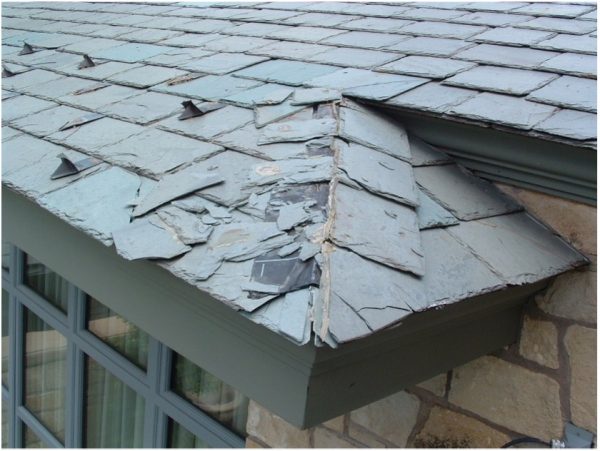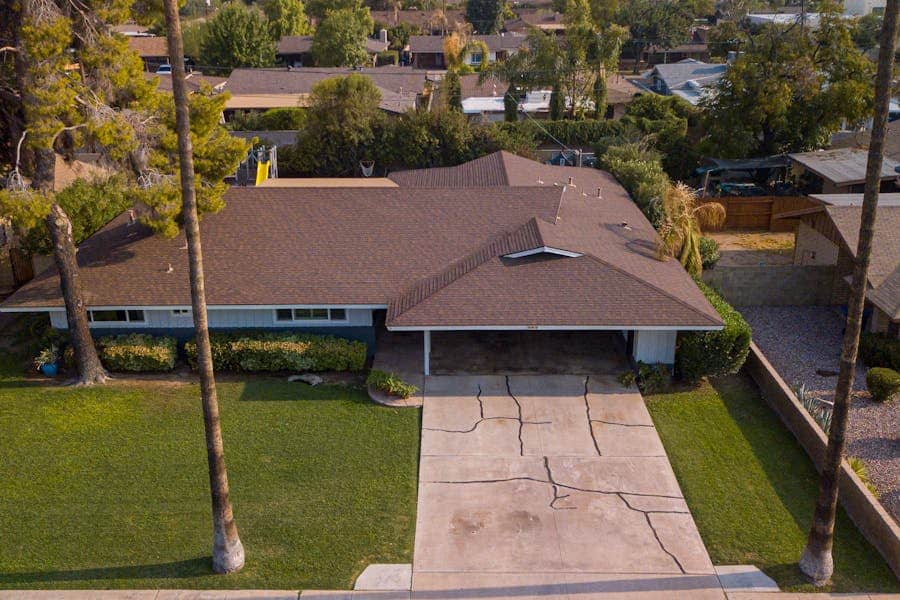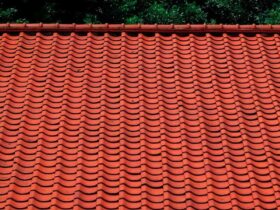Slate is a heavy material with an average weight of 1.889 kg per square. Slate is commonly used in pool tables, roofing tiles, and other construction applications due to its durability and strength.
It is important to consider the weight of slate when working with or installing this material to ensure proper support and structural integrity. The weight of slate can vary depending on the thickness and supplier, so it is recommended to consult with a specific manufacturer or supplier for accurate weight measurements.
Additionally, slate weight calculators are available to estimate the weight of slate based on specific dimensions and requirements.

Credit: www.davinciroofscapes.com
The Weight Of Slate
Slate’s weight varies depending on thickness and supplier, typically measured per square. The average piece weighs around 1. 889 kg. Understanding slate’s weight impacts decisions in roofing and pool table installation.
What Is Slate?
Slate is a fine-grained metamorphic rock that is composed of clay minerals, mica, quartz, and various other minerals. It is formed through the process of regional metamorphism where shale or mudstone is subjected to heat and pressure. This transformation gives slate its characteristic smooth and flat surfaces, making it a popular choice for various applications.
Common Uses Of Slate
Slate’s durability, versatility, and aesthetic appeal make it a highly preferred material in different industries. Here are some of the common uses of slate:
- Roofing: Slate is widely used as a roofing material due to its ability to withstand extreme weather conditions, fire resistance, and long lifespan.
- Flooring: Its low porosity and slip-resistant properties make slate a great choice for flooring in both indoor and outdoor settings.
- Countertops and Kitchen Surfaces: Slate’s heat resistance and natural beauty make it an excellent material for countertops, backsplashes, and kitchen surfaces.
- Wall Cladding: Slate adds a touch of elegance to walls and facades, making it a popular choice for both interior and exterior cladding.
- Patio and Garden Features: Slate’s natural earth tones and ability to retain heat make it perfect for creating stunning patios, walkways, and garden features.
- Billiard Tables: The smooth, flat, and durable surface of slate makes it the preferred material for the playing surface of billiard tables.
In addition to these applications, slate is also used for electrical switchboards, writing boards, blackboards, craft items, and more.
So next time you come across slate, whether it’s on a roof or a billiard table, you can appreciate the unique qualities and versatility of this remarkable natural stone.
Understanding Slate’s Weight
Slate’s weight varies depending on the supplier and thickness, with the weight based on pounds per square. This impacts factors like roof load and pool table construction, making it crucial to understand how heavy slate can be.
Factors Affecting Slate’s Weight
Slate’s weight is influenced by various factors:
- Natural Variation: Slate weights can vary due to differences in mineral composition.
- Thickness: Thicker slates generally weigh more compared to thinner ones.
- Density: The density of the slate material impacts its overall weight.
- Size and Shape: Larger and irregularly shaped slate pieces tend to be heavier.
Comparing Slate Weights
When comparing slate weights:
- Pool Table Slate: Pool table slate typically weighs around 1.889 kg per piece.
- Roofing Slate: Roofing slate’s weight varies based on thickness and supplier specifications.
- Slate Roof Shingles: The weight of slate roof shingles is determined by pounds per square.
In conclusion, understanding the weight of slate involves considering factors like natural variation, thickness, density, and size.
Slate In Construction
Slate, commonly used in construction due to its durability and aesthetics, varies in weight depending on thickness and size. Typically, slate for roofing averages about 1. 5 pounds per square foot, while slate used in pool tables can weigh around 480 pounds in total.
Different applications may have varying weight requirements.
Slate Roofing
Slate roofing is a durable and elegant roofing option.
It is popular for its longevity and aesthetic appeal.
Slate roofs can last for over a century with proper maintenance.
Impact On Structure
- Structures with slate roofs have enhanced durability.
- They can withstand harsh weather conditions.
- The weight of slate roofing materials contributes to the structural integrity of a building.
Slate In Billiards
Billiards, or pool, is a popular game that requires a level playing surface for accurate shots and smooth gameplay. One crucial component of a billiards table is the slate, which is used to provide a sturdy and flat playing surface. Slate’s weight and thickness play a significant role in determining the overall quality and performance of the pool table.
Weight Of Slate Pool Tables
When it comes to slate pool tables, the weight of the slate is a key consideration. Slate is a heavy natural stone, and it contributes to the stability and consistency of the table. The weight of slate pool tables varies depending on the size and thickness of the slate used.
Professional-grade slate pool tables typically feature slate that weighs between 600 to 1000 pounds. It is important to note that the weight of the slate also includes the weight of the supporting framework and other components of the table.
Professional Grade Slate Thickness
In addition to its weight, the thickness of the slate used in professional-grade pool tables is another important factor. The standard thickness for professional-grade slate is usually 1 inch or 1.25 inches. This thickness provides the necessary stability and durability required for high-level gameplay.
A thicker slate results in a more steady and consistent playing surface, reducing the chances of warping or sagging over time. Professional players often prefer tables with thicker slate because it allows for better control and accuracy in their shots.
On the other hand, tables with thinner slate may be more affordable and suitable for recreational players or those with limited space. However, the overall quality and performance may not be on par with professional-grade tables.
Slate Weight Calculator
If you need to estimate the weight of the slate for your pool table, you can use a slate weight calculator. These calculators take into account the dimensions and thickness of the slate to provide an approximate weight. They can be helpful when determining the feasibility of installing a pool table in a particular location, especially if weight restrictions need to be considered.
In conclusion, slate plays a crucial role in the performance and quality of billiards tables. Its weight and thickness determine the stability and consistency of the playing surface. Professional-grade tables usually feature thicker slate, providing optimal gameplay for serious players. Consider the weight and thickness of slate when selecting a pool table to ensure an enjoyable and accurate gaming experience.
Measuring Slate’s Weight
Slate is naturally heavy, making it a popular choice for construction and decorative purposes. Measuring slate’s weight is essential for various applications, such as roofing, flooring, and billiard tables. Understanding the weight units, as well as the calculations involved, is crucial for effectively utilizing slate in different projects.
Weight Units
When measuring the weight of slate, it’s important to understand the various units used for this purpose. The most commonly used weight units for slate are pounds (lbs) and kilograms (kg).
Slate Weight Calculations
Calculating the weight of slate involves determining the volume and specific gravity of the material. The formula for calculating the weight of slate is:
Where:
- Volume – The amount of space the slate occupies.
- Specific Gravity – The density of the slate compared to water.

Credit: www.twaggregates.co.uk
Slate Weight Faqs
Slate weight FAQs often revolve around the query: “How heavy is slate? ” The average weight of slate varies depending on the type and supplier, but typically, it ranges from 8 to 12 pounds per square foot. This information can be essential for roofing, pool table making, and other construction purposes.
Slate Weight For Roofing
When it comes to roofing materials, heavyweight can be a significant consideration. For roofing, the weight of slate is crucial, as it impacts the structural integrity and support requirements. The weight of slate roofing is typically measured in pounds per square foot. It’s essential to understand this weight factor when planning for a new roof or replacement. Here are some typical weights for slate roofing:
- Standard slate thickness typically weighs around 8 to 10 lbs per square foot.
- Heavier-grade slate may weigh 10 to 12 lbs per square foot.
- In comparison, asphalt shingles generally weigh around 2.5 to 4 lbs per square foot.
Weight Of Slate Stone
When considering the weight of slate stone for various purposes, it’s important to understand its density and specific gravity. Slate stone can vary in weight depending on its thickness and cut. Here are some general considerations for the weight of slate stone:
- Thicker slate stone pieces tend to be heavier due to the increased mass and density.
- On average, slate stone weighs approximately 150 to 170 lbs per cubic foot.
- The weight of slate stone can also vary based on the type, with denser varieties weighing more.
Frequently Asked Questions Of How Heavy Is Slate
How Much Does A Piece Of Slate Weigh?
A piece of slate weighs about 10 to 12 pounds per square foot.
What Is The Average Weight Of Slate?
The average weight of slate is around 2. 7 grams per cubic centimeter.
How Heavy Is Natural Slate?
Natural slate weighs approximately 1. 889 kg or 4. 17 lbs per square foot.
How Much Does Slate Stone Weigh?
Slate stone weighs around 1. 889 kg per square foot. It varies depending on the thickness and supplier.
How Heavy Is Natural Slate?
Natural slate weight depends on density and thickness, typically ranging from 7. 5 to 12 pounds per square foot.
What Factors Determine Slate Weight?
Slate weight is influenced by thickness, size, and volume. Thicker slates generally weigh more.
Conclusion
Slate, a popular material for roofing, pool tables, and other applications, can vary in weight depending on its thickness and size. The weight of slate is typically measured in pounds per square or square foot. It is important to consider the weight of slate when making decisions about installation and maintenance.
Whether you are a homeowner or a professional, understanding the weight of slate can help you make informed choices for your projects. So, before diving into your next slate project, make sure to take into account its weight and consult with experts to ensure a safe and sturdy installation.










Leave a Reply